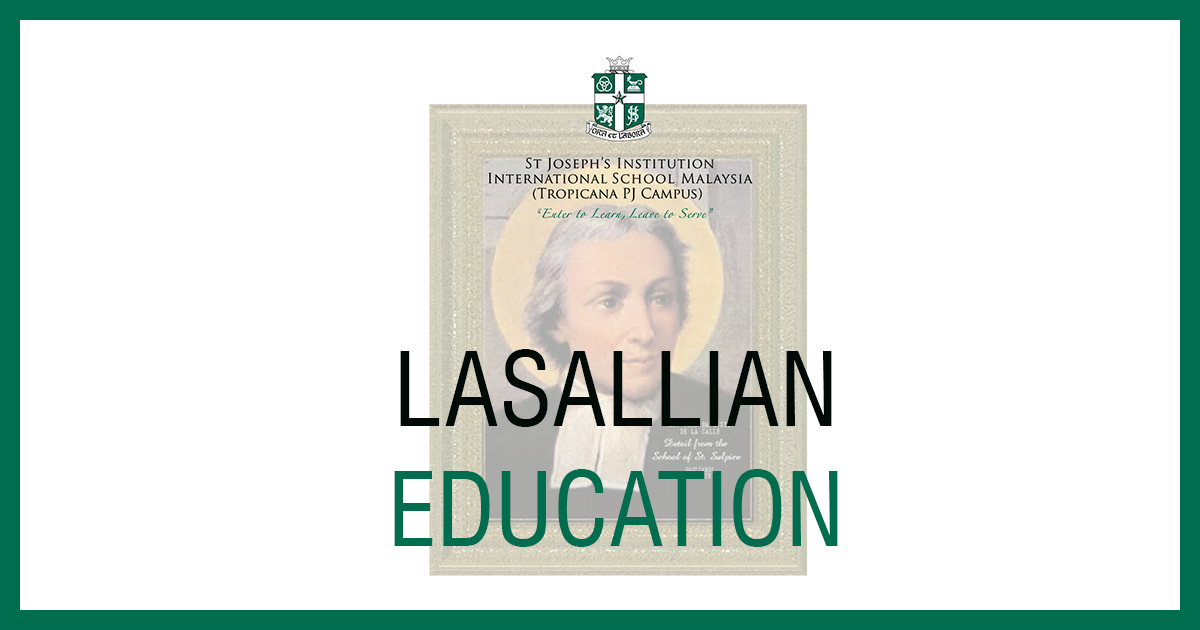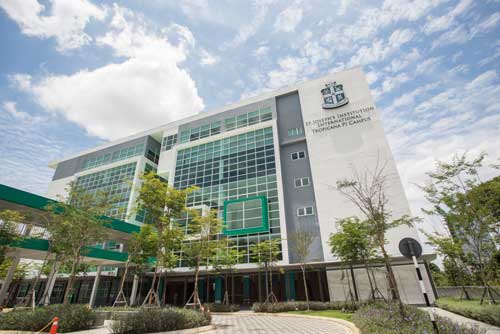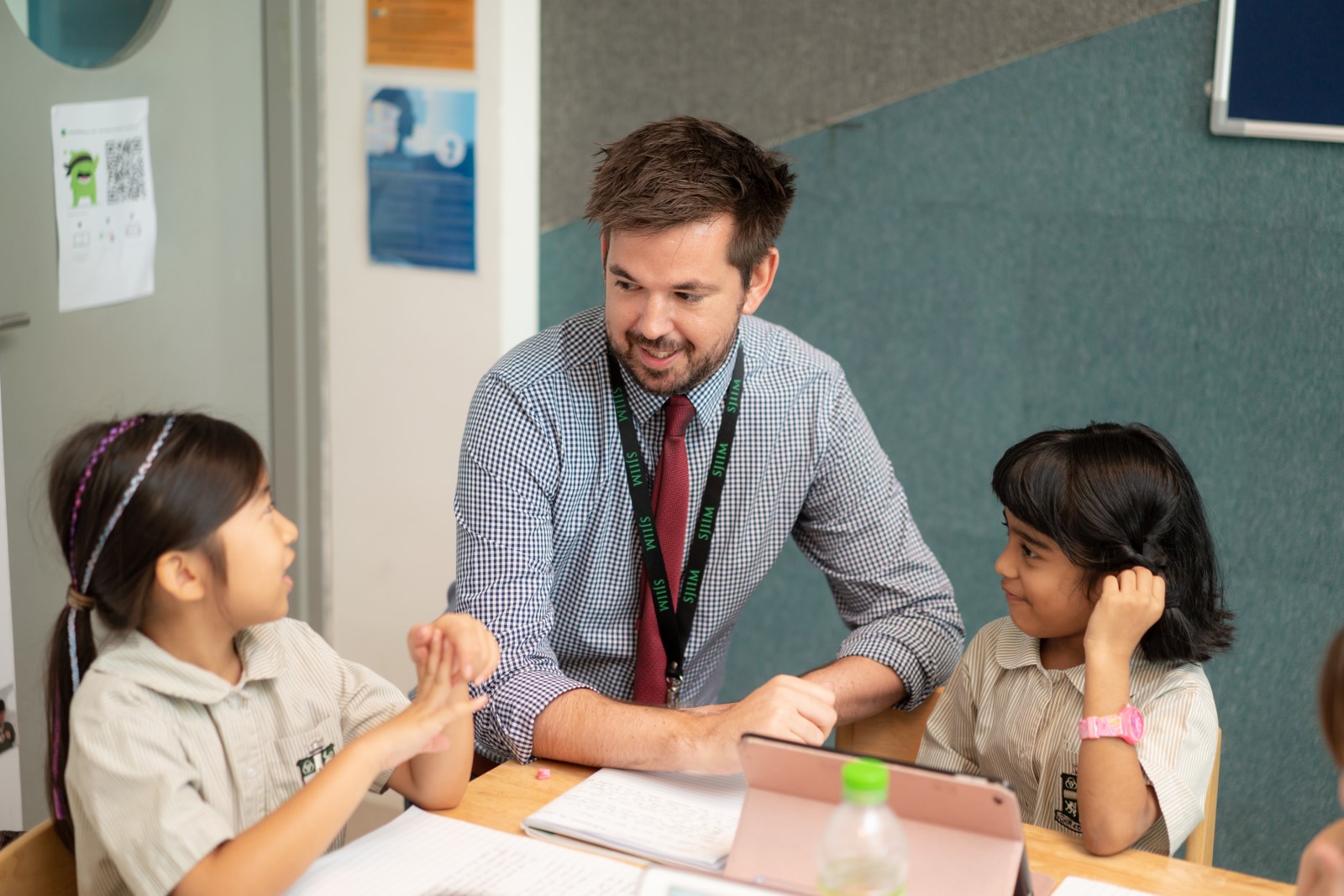
The Lasallian ideal: “Teaching Minds and Touching Hearts” helps to embed a strong set of positive school values in our students and helps to shape pupil’s understanding of the world. At SJIIM, teachers explicitly teach the core values of Faith, Service and Community so that students know what each of the values mean and how the values are lived. As educators, we recognise that students will enter professions that either do not yet exist or if they do, they will evolve into something quite different. A Lasallian education aims to nurture character traits and values so that our students flourish into a different type of leader, a Lasallian leader, equipped with the necessary values and attributes of a lifelong learner.
Elementary School
In our Elementary School, Lasallian Education lessons are very much student-centred and links between Lasallian Education and other subjects are purposely made so that each child receives a holistic learning experience.
Using our Founder Saint John Baptiste de la Salle as a role model, students learn about the importance of developing key virtues such as resilience, tolerance, respect, courage and team spirit (key attributes of a Lasallian leader). Through the various service projects which are provided, students learn about empathy and gratitude too.
Early Years
Our Early Years students are encouraged to explore different ways of connecting with one another. Activities and discussions are carefully planned out so that all children can learn in an open and honest environment. At this stage, students learn about their role in our school community, talk about their beliefs and engage in age appropriate service projects.
Phase 1 (Year 1 and Year 2)
In Year 1 and Year 2, students’ Lasallian leadership traits are further nurtured. The children continue to focus on their own beliefs and also the faith of others around them. Discussions about respecting and understanding other cultures, perspectives and languages helps the students to become more global minded and through various service projects, students seek out their own ways to improve the world.
Phase 2 and Phase 3 (Year 3 – Year 6 )
By the end of Year 6 students will have explored the many ways for developing their Lasallian leadership traits and values. For the older students, the aim is to help students to become more reflective learners. With guidance, students learn about how their actions have an impact on the world and through our service learning program, they increasingly develop their creativity, flexibility and communication skills.
High School
In High School, every student participates in a weekly 40 minute Lasallian Education lesson. Taught by specialist teachers, the subject aims to complement the curriculum by dedicating time to nurturing social, moral and cultural values so that our students begin to see the world quite differently.
Forbes recently recognised the need for a more humanised approach to leadership for the future. Bestselling author and keynote speaker Jacob Morgan, outlines four key ‘mindsets’ fortomorrow’s leaders in his new book, The Future Leader. Here is how Lasallian Education fits into the future leader model:
1. Global Citizen
As the world becomes increasingly connected, companies must embrace the diversity and the advantages that it brings to teams. Inclusive community is a key Lasallian principle and during lessons, students have the opportunity to learn about different cultures, traditions and faiths. Students are encouraged to go beyond the virtue of tolerance by embracing different beliefs and values.
2. Servant leader
A top-down approach to leadership is now a thing of the past with many companies adopting the servant model that places the leader as a servant across the organisation. Service-learning is placed at the heart of the curriculum. It is through this act of serving others that our students develop the virtues of humility and compassion. Every year, students take part in thematic service projects that allow them to contribute their gifts and talents to the wider community.
3. Chef
Like any good chef, future leaders will need to carefully balance the two key ingredients of any advancing organisation: people and technology. This will require a level of virtue reasoning and perception that we encourage through inquiry-based learning models and the study of philosophy and ethics. From epistemology to virtue ethics, students are encouraged to think laterally and open their minds to different perspectives.
4. Explorer
Taking inspiration from our founder, St John Baptist De La Salle, who overcame challenges throughout his life, Lasallian Education aims to inspire students to think and act with courage, creativity, and care for others. The life story of our founder and the 300-year Lasallian tradition acts as a daily inspiration for learning that not only develops knowledge, understanding and skills but also nurtures the character of each individual throughout their school journey.


By Karen Willoughby and Victoria Stacey





